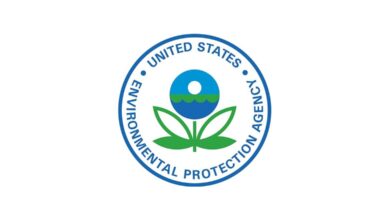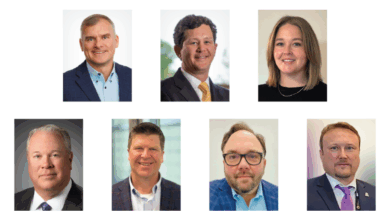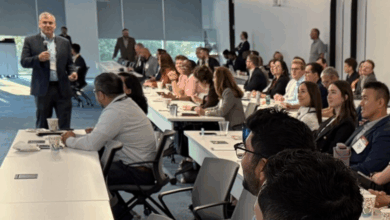Drilling Ahead: Safety – Collaboration, not confrontation
By Mike Killalea, editor & publisher
Against the changing backdrop of E&P regulation in the post-Macondo world and with shales capturing a skeptical public eye, we must as an industry unite on basic principles of governance and self-regulation. If industry is to sustain its license to drill and produce, it’s critical to collaborate and confront tough realities.
History has clearly demonstrated that a goal-setting regulatory philosophy leads to the safest operations. The 1988 explosion of the production platform Piper Alpha in the UK North Sea resulted in the landmark Cullen Report, whose recommendations culminated in the original safety case. IADC led in development of the safety case and, over time, has enhanced these tools and propagated them globally.
Regulators, industry and the public have mutual goals and interests in ensuring safe and environmentally responsible operations. Regulators should not be lapdogs, but neither need they be pit bulls: Tense relations between government and industry are contrary to the public’s best interests.
Industry must move forward with self-regulation and improved best practices, and so it is. The expansion of IADC’s Knowledge, Skills & Abilities competency guidelines (Page 20) is one key example.
Understanding roles
We cannot craft sensible regulations nor best practices without a sound understanding of the nuances of the roles of each industry sector. For example, drilling contractors are basically well manufacturers, producing a product wholly designed by its customer, the operator. Drilling contractors are innocent of involvement in well planning and are absent any stake in subsurface reserves. Logically, contractors should not be liable for reservoir discharges, save for severe negligence. To hold contractors thus liable is a recipe for insurance cancellations and the potential demise of the industry.
Legal hassles also hinder safety. Literally, fear of criminal prosecution has blocked some operators from sharing information about recent events that, if disseminated, would clearly help the industry. Criminal prosecution and arrests are a new, alarming step change beyond all-too-familiar civil litigation.
Don’t “EU-thanize” the North Sea!
Another factoid is that politicians will be politicians – reactive and preening for the public. When politicians flex their muscles, it’s invariably a knee jerk. Witness the latest antics of the European Union, which is attempting what amounts to a power grab of pan-European E&P regulation. I suppose the EU is encouraged by its powerhouse performance in the financial sector!
This proposed North Sea EU-thanization is largely a post-Macondo Pavlovian response. But, if imposed, seasoned North Sea regulators – in the UK, Norway, Netherlands, Germany – will be subordinated to green EU bureaucrats.
In fairness, there is a case for uniformity. IADC some years ago worked closely with the regulators’ group North Sea Offshore Authorities Forum to harmonize training requirements across national borders. And in emerging Eastern Europe, regulators may benefit from the EU’s assistance. But one size doesn’t fit all. And sidelining skilled regulators is a poor way forward.
A study in courage
Magne Ognedal, chief of the Petroleum Safety Authority Norway, is such a seasoned regulator. Mr Ognedal, speaking on our Licence to Drill panel at IADC World Drilling 2012 (June, Barcelona), shed some light on the political hand wringing in Europe post-Macondo. The EU called for a moratorium, and the Norwegian regulator was duly queried on the topic by his ministers.
Mr Ognedal is far too polite and courtly to complain. But reading between the lines, it was obvious to me that significant political pressure descended upon him to endorse a drilling moratorium. But Magne Ognedal stood firm.
“I said I had no reason to close down,” Mr Ognedal related. “As a professional, I need a reason to close down. So my advice [was] to do nothing until we have discovered what went wrong and why. And this conversation went on for three months before the politicians calmed down. …
“I think they are very happy today that they didn’t do anything.”
Sometimes, what you really want is to not get what you want.
Mike Killalea can be reached via email at mike.killalea@iadc.org.




